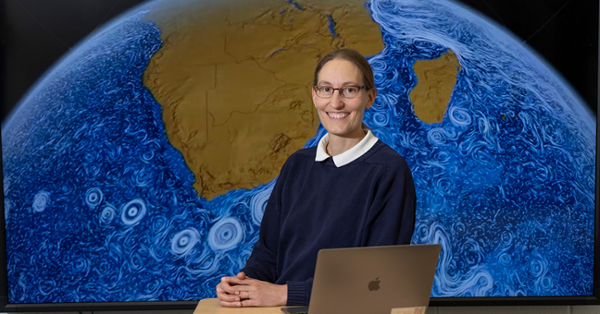Rowan University mathematician co-authors landmark study on cleaning the North Pacific Garbage Patch
Rowan University mathematician co-authors landmark study on cleaning the North Pacific Garbage Patch

Helga Huntley, Ph.D., an assistant professor in the College of Science & Mathematics at Rowan University, has co-authored a groundbreaking new study evaluating the environmental impact of large-scale efforts to clean the North Pacific Garbage Patch (NPGP). Published May 27 in Scientific Reports, the study offers the first comprehensive framework for assessing the ecological trade-offs of ocean plastic cleanup.
The research, led by The Ocean Cleanup’s Matthias Egger, brings together a diverse team of scientists to determine whether removing legacy plastic pollution from the ocean does more good than harm. Huntley, a mathematician, played a key role in developing the methodology used to quantify and compare the impacts of cleanup operations on various marine species.
“My contribution was figuring out how to combine all the different biological impacts into a single score,” Huntley said. “We wanted to assess how intense, frequent and reversible the effects were on different organisms, and then calculate a meaningful impact score.”
The study found that marine life is more vulnerable to plastic pollution than to the cleanup process itself. An 80% reduction in macroplastics could bring pollution levels within safe thresholds for marine mammals and sea turtles. The long-term benefits—such as reduced microplastic generation and improved carbon cycling—outweigh the carbon emissions produced by cleanup vessels.
The research also highlights the importance of using the latest technology to minimize harm to marine life. For example, The Ocean Cleanup’s system now includes video monitoring to prevent sea turtles from being caught in collection nets.
“This work shows that we can clean up the oceans—and probably should,” Huntley said. “But it’s even more important to prevent plastic from entering the ocean in the first place.”
The study’s findings are expected to inform future cleanup strategies and inspire broader applications of the impact assessment framework in other environmental contexts.